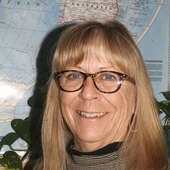- Research tips and McCook Brick Company- solid as a brick (12/16/24)
- Big Give appreciation and some railroad characters (11/15/24)
- George Randel becomes a landowner, gets married, and takes in a Buffalo Bill show (9/20/24)
- The memoirs of George F. Randel, early settler of Red Willow County (9/12/24)
- Vietnam War Memorial honors Nebraskans who served (6/13/24)
- McCook business promotions - just prior to 1893 stock market crash (5/30/24)
- Shall we dance? Meet you at the Gayway (12/8/23)
Opinion
When the circus came to town
Friday, January 27, 2017
When after 146 years of operation the Ringling Brothers circus announced their decision to close their business, I was thrown back into childhood memories.
The one circus I remember seeing as a child was held in, of all places, the City Auditorium. I remember being there sitting in the upper seats watching the performance below. Nothing drew my attention more (well, other than what prize was in my Cracker Jacks) than the elephants performance, which might be why upon retiring their elephants, Ringling Brothers had to give up their long history of entertainment.
The five brothers, who were featured prominently in all of the advertisements, brought their show to McCook in 1908, harking a 65 rail car circus train, 1,000 employees, 300 performers, 500 horses and 25 elephants plus many other animals within their 12 acres of tents and exhibits. One could attend all of the events for a mere 50 cents (children under 12 were half price).
They had chariot races on a four-mile race track, a free street parade every morning at 10 a.m., and they combined with the railroad to have ticketed rides from neighboring towns which included the price of the show! Featured in the ad that I found was the big "20 Ton Brass Band" depicting elephants playing the French horn under the direction of a wand swinging, spectacle wearing elephant and claiming that their music was "louder than a thousand human band men."
Ringling Brothers were not the only circus that came to McCook in those early days. Fairbury, Neb., had its own circus, the Campbell Brothers Great Consolidated Shows. The Campbell show was apparently famous for its thoroughbred horses (mounted by a "bevy" of pretty girls in "natty" costumes), of which in 1909 they had 250-plus 11 elephants and 500 employees. They, too, had a grand street parade "over a mile in length" followed by their daily shows at 2 and 8 p.m.
Earlier circus acts were editorialized in the McCook Tribune: "Walter L. Main's circus here yesterday drew a large crowd. The affair was much larger than expected and was meritorious throughout. There was a pleasurable absence of fakers, tough characters, three-card monte men (the method of removing a person's money with the three cards facing down trick) and such dangerous nuisances that usually congregate around a circus. The performance was good and much appreciated. (September 23, 1892)
All circus managers had front men who traveled ahead of the entertainers providing large advertising signs and taking comments from previous performances to the local newspaper in order to convince the general public that their operation was the biggest, the cleanest, and had the most breathtaking acts of all. One, the F. J. Taylor Circus and Menagerie sent the McCook Tribune the following description of their circus: "The circus was excellent, and the entertainment a clean one. Mr. Taylor gives one of the most honest and creditable circus performances it has been our pleasure to witness, and he is to be commended for the absence of fakers, confidence men and swindlers that usually accompany shows." From the Hebron Journal printed in the McCook Tribune, June 24, 1892.
It seems that all circuses that came to McCook were clean and had no confidence men, according to the articles, but then who is going to bring a business to a town that speaks unfavorably about it?
Southwest Nebraska Genealogy Society's library will be open each Wednesday for research from 1-4 p.m. We are located a half block west of Norris Ave, 110 West C, Suite M-3. Join us for help with your ancestor hunt!

